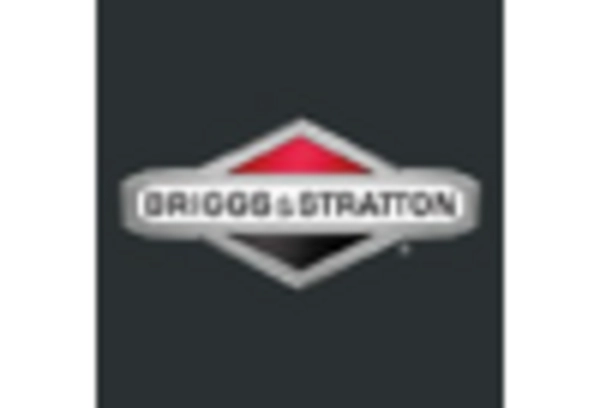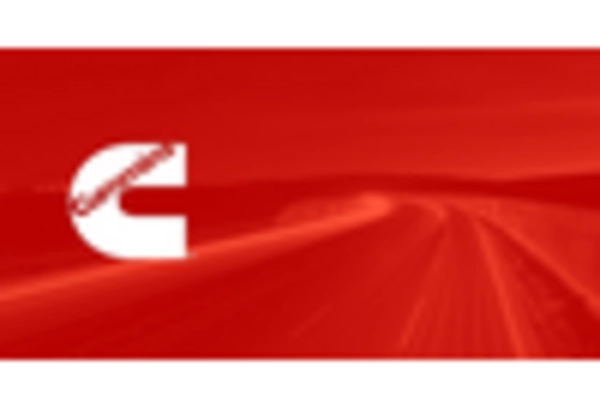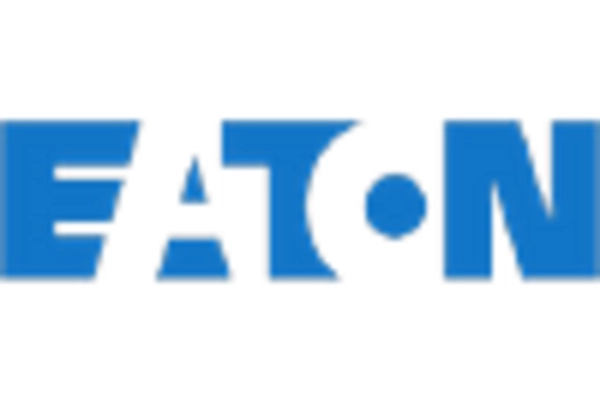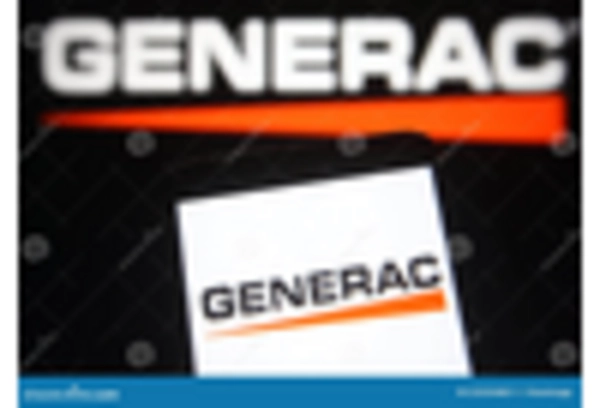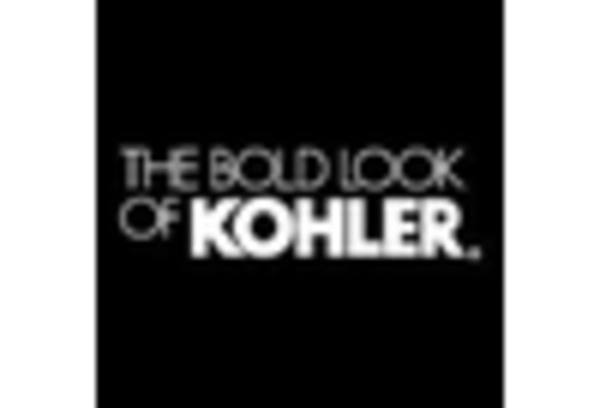Rising Energy Demand
The increasing energy demand in Germany is a crucial driver for the backup power market. As the population grows and industries expand, the need for reliable energy sources intensifies. In 2025, Germany's energy consumption is projected to rise by approximately 1.5% annually, necessitating robust backup solutions to ensure uninterrupted power supply. This trend is particularly evident in urban areas where energy requirements are surging. The backup power market is responding to this demand by offering advanced solutions that can cater to both residential and commercial sectors. The integration of backup systems is becoming essential for businesses to maintain operations during outages, thereby driving market growth. Furthermore, the shift towards electric vehicles and smart technologies is likely to further escalate energy consumption, reinforcing the need for effective backup power solutions.
Increased Frequency of Power Outages
Germany has experienced a notable increase in the frequency of power outages, which serves as a significant driver for the backup power market. Recent data indicates that the average number of outages per year has risen by 20% over the past five years, prompting both consumers and businesses to seek reliable backup solutions. The backup power market is witnessing heightened interest in generators and battery storage systems as essential tools for mitigating the impact of these outages. This trend is particularly pronounced in sectors that rely heavily on continuous power supply, such as healthcare and manufacturing. As the reliability of the grid comes under scrutiny, the demand for backup power systems is expected to grow, with consumers increasingly prioritizing energy security and resilience in their energy strategies.
Growing Awareness of Environmental Impact
There is a growing awareness among consumers and businesses in Germany regarding the environmental impact of energy consumption, which is driving the backup power market. As sustainability becomes a priority, many are seeking eco-friendly backup solutions that minimize carbon footprints. The backup power market is responding by offering renewable energy-based systems, such as solar-powered generators and hybrid solutions that combine traditional and renewable sources. In 2025, it is anticipated that the demand for such environmentally conscious options will increase by approximately 25%. This shift not only aligns with Germany's commitment to reducing greenhouse gas emissions but also appeals to a consumer base that is increasingly concerned about sustainability. The integration of green technologies into backup power systems is likely to enhance market growth and foster a more sustainable energy future.
Government Incentives for Energy Resilience
The German government has implemented various incentives aimed at enhancing energy resilience, which significantly influences the backup power market. Programs that offer financial support for the installation of backup systems are becoming more prevalent, encouraging both residential and commercial users to invest in these technologies. In 2025, it is estimated that government subsidies could cover up to 30% of the installation costs for backup power solutions. This financial backing is likely to stimulate market growth, as it lowers the barrier to entry for many consumers. The backup power market is thus positioned to benefit from these initiatives, as they not only promote energy independence but also align with Germany's broader sustainability goals. The combination of financial incentives and a growing awareness of energy security is expected to drive significant adoption of backup power systems.
Technological Innovations in Backup Systems
Technological advancements in backup power systems are reshaping the landscape of the backup power market. Innovations such as smart grid technology, energy management systems, and improved battery storage solutions are enhancing the efficiency and reliability of backup systems. In 2025, the market is likely to see a surge in the adoption of lithium-ion batteries, which offer higher energy density and longer life cycles compared to traditional options. The backup power market is adapting to these changes by integrating cutting-edge technologies that not only improve performance but also reduce costs. As consumers become more tech-savvy, the demand for intelligent backup solutions that can be monitored and controlled remotely is expected to rise. This trend indicates a shift towards more sophisticated systems that can seamlessly integrate with existing energy infrastructures.



